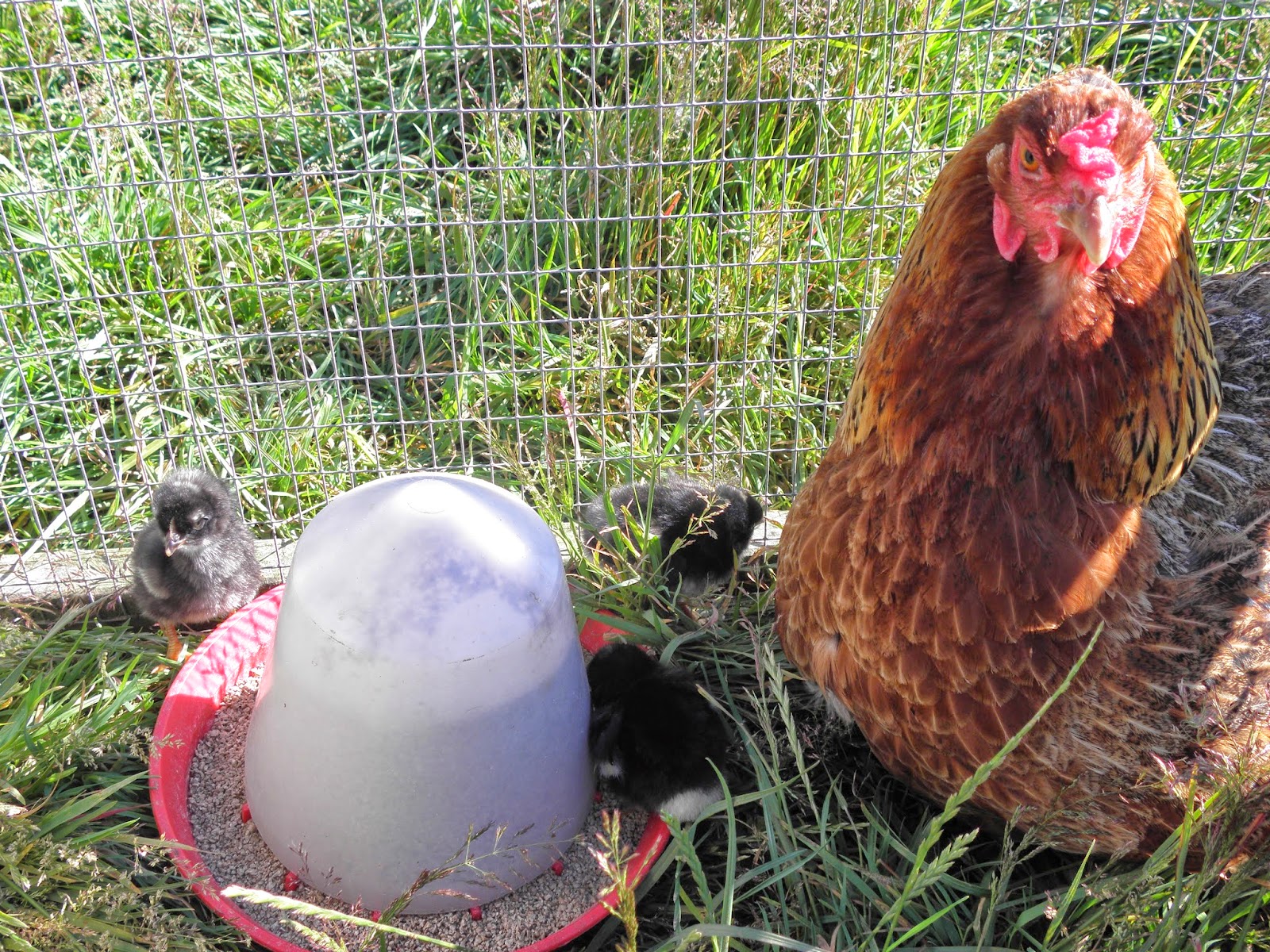It has been hot here at
Flyte so Fancy HQ for roughly a fortnight now. Now, don't think I am complaining for one second. Summer in Dorset is a wonderful thing, but whilst I am able to placate the staff rumblings and mumblings with ice lollies and ice creams each afternoon, keeping the feathered flock at FSF cool and calm during this heat is a lot harder.
 |
| Chickens and Ducks using one of many Poultry Drinkers |
Their are two ways to keep a hen cool.
Firstly shade and secondly plenty of fresh water. As I'm sure many of you know, chickens
do not have sweat glands so when it comes to keeping cool for a hen, the task is a bit more difficult. When the weather is hot, you will see your flock being more active in the mornings and evenings and retreating out of the sun during the rest of the day. You might see your hen basking in the sunshine, laying in a sunny spot with a wing splayed and soaking up some rays, they're just enjoying the weather, but it is vital to make sure that you have
somewhere for them to stay out of the heat, for a siesta.
 |
| A Chicken Shelter to give our Girls some Shade |
Chicken Shelters have many functions and are often thought of as primarily keeping the rain off your girls during the long cold British winters. They do however equally serve the dual purpose of providing
a cool shady spot for your hens to get out of the harsh summer sun. The inability to sweat means that one of the best ways for a hen to stay cool is to retreat into a cool dark spot. If you don't have room for a separate chicken shelter in your poultry pen or run, having
a long legged hen house provides a place, in a similar manner, for chickens to retreat to during the midday hour.
 |
| Bucket Drinkers are Ideal for Ducks |
Having a good supply of water for your hens is important too. While the FSF ducks and geese are happy to continually launch themselves into the pond for a cooling off, with the exception of our
swimming chicken, the chickens and guinea fowl need plenty of water throughout the hot weather. We have a variety of
poultry drinkers in the field, from
lying bucket drinkers and
honeypot drinkers whose contained drums help keep water fresh, through to troughs and some of the smaller
Combo drinkers for our growing chicks. We have also made sure that their are enough poultry drinkers, with plenty of capacity to ensure that all of our flock can get a drink and that they don't run out mid way through the day. If you're wondering which drinker might be best suited for you, have a look at
OUR VIDEO, as Boss Phill talks through some of the selection available and highlights some of the best bits of each.
Short of following your chickens around with a fan and a nice mixed corn ice lolly,
providing plenty of shelter and water for them is the best way to see them through this hot summer were having. If you have any questions, or even your own suggestion on keeping hens cool, why not leave a comment below.
Thanks for Reading
James








